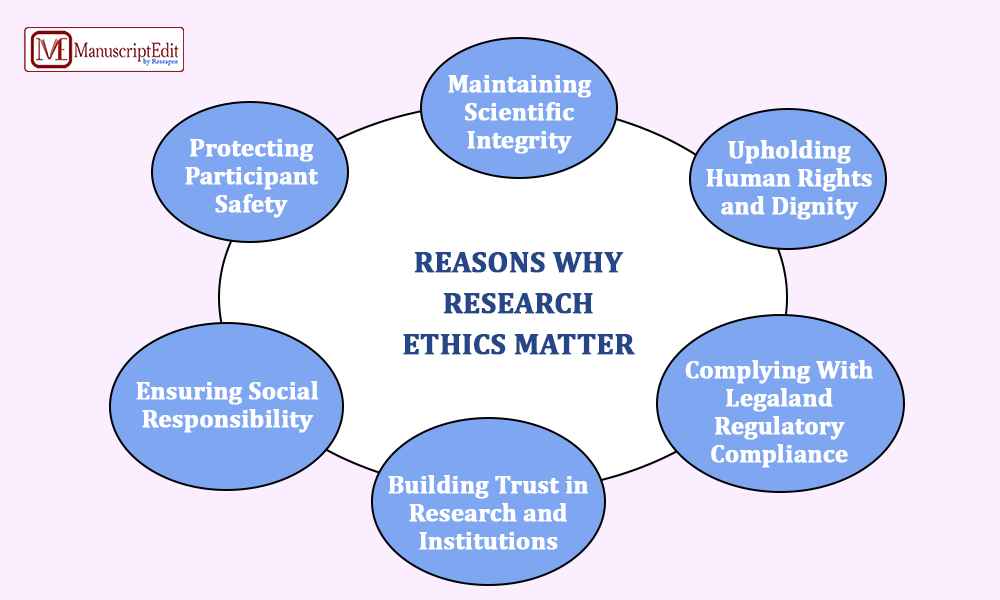
Peer review is a vital component of scientific publishing. It guarantees the calibre and validity of research. Peer reviewers play a crucial role in preserving the integrity of scientific research and advancing knowledge in their respective fields. This blog examines peer reviewers’ roles, responsibilities, and ethical issues.

What are the roles and responsibilities of a peer reviewer?
Peer reviewers carefully examine manuscripts, providing helpful feedback on their content, structure, and methods. They consider whether the work is relevant, original, and meaningful while spotting mistakes, biases, and discrepancies.
Their thorough assessment leads to valuable suggestions for improvement, safeguarding the integrity and excellence of scholarly publications.
Ethical Argument Example
A reviewer is asked to evaluate a manuscript that challenges their research findings. They must set aside their biases and objectively assess the manuscript, providing constructive feedback and recommendations.

What is the role of ethics in peer review?
Ethics are crucial in the peer review process, ensuring fairness and honesty in academic discussions. Reviewers uphold integrity by keeping information confidential, being transparent about personal biases, offering helpful feedback, and evaluating submissions fairly.
This ethical behavior builds trust among researchers, elevating the quality of scholarly work and preserving the integrity of scientific knowledge sharing.
Which of the following is an ethical duty of peer reviewers?
Peer reviewers have ethical duties like keeping information confidential, being transparent about conflicts of interest, offering helpful feedback, and assessing submissions fairly.
These actions maintain integrity, fairness, and trust in academic conversations, ultimately guaranteeing the credibility and excellence of scholarly contributions.
What are the ethical obligations of a reviewer?
Reviewers hold ethical obligations, such as maintaining confidentiality, disclosing conflicts of interest, providing constructive feedback, and evaluating submissions impartially.
Upholding these responsibilities ensures integrity, fairness, and trust within academic discourse, preserving the credibility and quality of scholarly contributions.
Why is peer review important in evidence-based practice?
Peer review exposes studies to criticism from subject-matter experts, reveals errors, and upholds rigorous standards, all of which contribute to the assurance of study quality and validity.
Assessing research for dependability, promoting knowledgeable decision-making, and expanding knowledge that guides clinical and policy initiatives strengthens evidence-based practice and eventually improves patient outcomes.
 Why is peer review important for students?
Why is peer review important for students?
Peer review is like having a study buddy who helps you understand things better. When students review each other’s work, they learn to think deeply and see things from different angles. This prepares them for jobs where sharing ideas and giving feedback is essential, like in research or teaching.
Conclusion
To sum up, ethical peer review plays a critical role in guaranteeing the legitimacy and validity of scientific findings. Reviewers are ethical and responsible for preserving the integrity of the scientific record, which can promote an environment of integrity, openness, and trust that will advance science and benefit society.
References
- https://ori.hhs.gov/sites/default/files/prethics.pdf
- https://www.councilscienceeditors.org/2-3-reviewer-roles-and-responsibilities
- https://editorresources.taylorandfrancis.com/managing-peer-review-process/the-ethics-of-peer-review/
- https://asm.org/articles/2023/june/five-cs-ethical-peer-review-scientific-publishing
